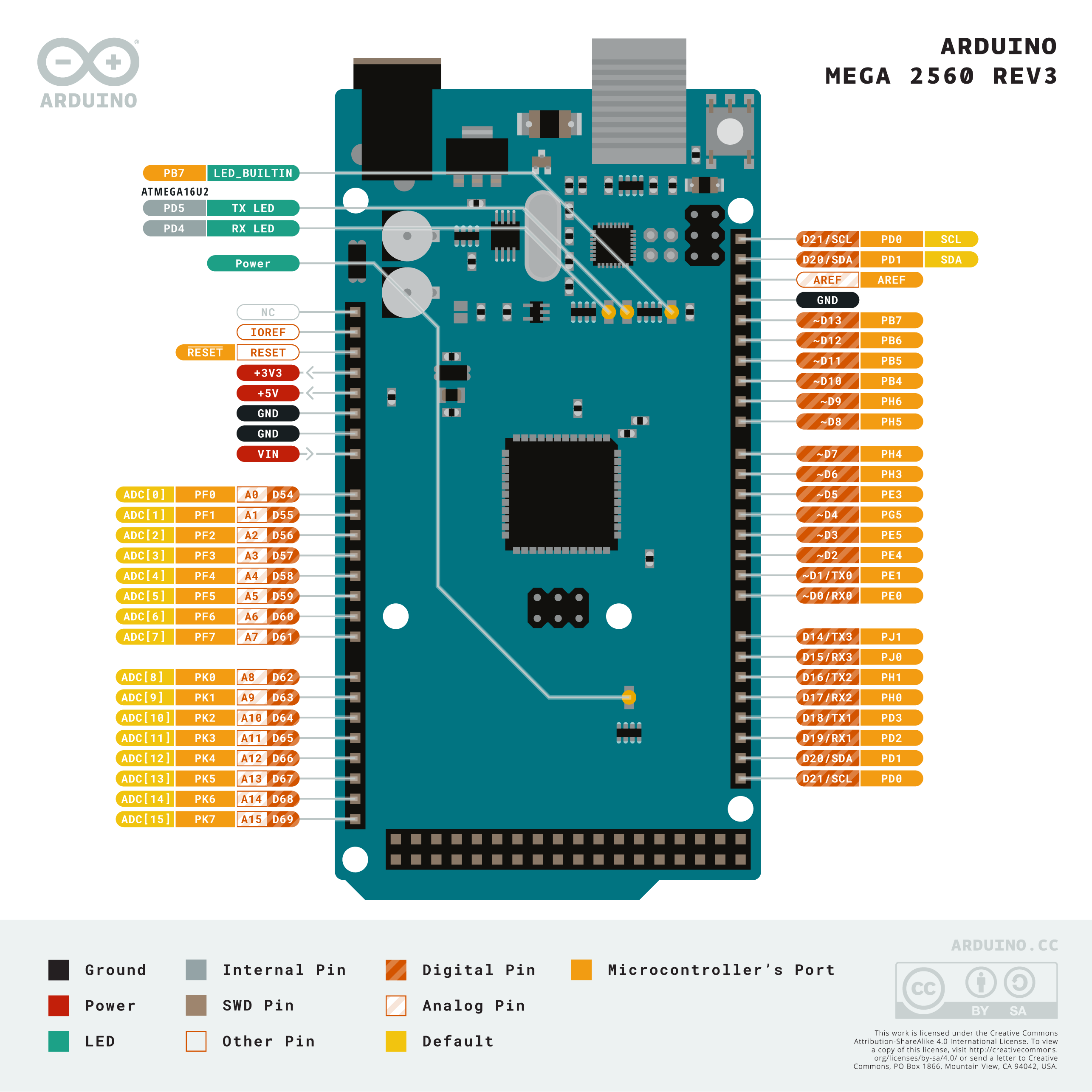
- Arduino mega pinout blank fill in sheet diagram how to#
- Arduino mega pinout blank fill in sheet diagram serial#
- Arduino mega pinout blank fill in sheet diagram software#
- Arduino mega pinout blank fill in sheet diagram code#
Arduino mega pinout blank fill in sheet diagram serial#
This form of serial communication is asynchronous, meaning the data is transmitted without any help from a parallel clock signal.
Arduino mega pinout blank fill in sheet diagram software#
Or set up a software serial port using the SoftwareSerial library. If you've played around with Arduino, you've probably used the hardware UART to relay information back to your computer via the Serial Monitor. UART serial, or TTL serial, this may be the most basic serial communication method on the S7S. They also each add their own level of complexity on the firmware end (though, with Arduino, libraries really simplify the task). A big difference between each of the communication protocols is the number of pins each requires. Each of these interfaces offer their own benefits and disadvantages. Apt.but this display actually offers three different serial methods of interfacing: Serial UART, SPI and I 2C. The "Serial" in the Serial 7-Segment Displays is something of a generalization. Don't forget to connect ground (GND) as well. If you're using an Arduino, you could power the S7S off either the 5V or 3.3V headers. So don't give it any crazy-high voltages, anything over 6.0V will harm the display. The display's supply voltage is unregulated. Keep in mind that the supply voltage will affect how bright the display is - higher voltages increasing the maximum brightness. It can operate at anywhere from 3.0V to 5.5V. The S7S can be powered from a variety of voltage supplies.
Arduino mega pinout blank fill in sheet diagram how to#
To get a S7S up and running, you'll first need to figure out how to power the thing. Regardless of which interface you choose to send data, there are two pins to which you must connect: the power pins! VCC and GND. I 2C requires two pins, and SPI requires three. Using a basic serial input, you'll only need to connect to the RX pin. It'll be your choice to decide which of the three serial interfaces you'd like to use to connect to the display. If you're not sure what that is, definitely check out this tutorial.

You could use a combination of male headers and breadboard. You'll also need some way to connect between the display and Arduino. In the Arduino's stead, you could use an FTDI Basic, or any device capable of sending TTL serial data.

Required MaterialsĪside from the display itself, you'll need an Arduino (or one of its variants) to send the serial data.
Arduino mega pinout blank fill in sheet diagram code#
The board is very easy to use since you can just plug it straight into an Arduino Uno compatible board and you can use the same exact code examples as the Serial 7-Segment Display which are covered in this tutorial. If you have the 7-Segment Shield, we recommend going to its tab first and beginning your journey there. This tutorial also covers the 7-Segment Shield. Given the popularity of Arduino, the examples will make use of the ubiquitous development platform/language. We'll cover hardware set-up, assembly, and example interface circuits/code. The goal of this tutorial is to get you familiar with the Serial 7-Segment Display.


 0 kommentar(er)
0 kommentar(er)
